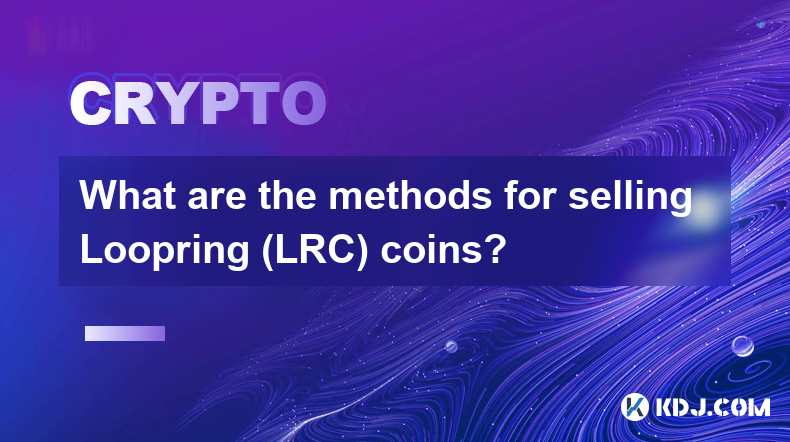-
 Bitcoin
Bitcoin $94,583.7736
-1.07% -
 Ethereum
Ethereum $1,818.9037
-0.64% -
 Tether USDt
Tether USDt $1.0000
-0.02% -
 XRP
XRP $2.1537
-0.93% -
 BNB
BNB $599.4781
1.78% -
 Solana
Solana $146.8762
0.32% -
 USDC
USDC $0.9999
-0.01% -
 Dogecoin
Dogecoin $0.1719
-0.30% -
 Cardano
Cardano $0.6677
-2.65% -
 TRON
TRON $0.2486
0.23% -
 Sui
Sui $3.4640
5.67% -
 Chainlink
Chainlink $13.7327
-2.06% -
 Avalanche
Avalanche $19.7020
-1.42% -
 Stellar
Stellar $0.2612
-2.07% -
 UNUS SED LEO
UNUS SED LEO $8.6594
-4.25% -
 Shiba Inu
Shiba Inu $0.0...01282
0.69% -
 Toncoin
Toncoin $2.9868
-2.26% -
 Hedera
Hedera $0.1752
-1.10% -
 Bitcoin Cash
Bitcoin Cash $355.1956
-0.22% -
 Hyperliquid
Hyperliquid $20.2485
-0.62% -
 Litecoin
Litecoin $85.7355
-0.81% -
 Polkadot
Polkadot $3.9582
0.41% -
 Dai
Dai $1.0002
0.01% -
 Monero
Monero $278.7119
1.35% -
 Bitget Token
Bitget Token $4.3009
-1.08% -
 Ethena USDe
Ethena USDe $1.0004
0.00% -
 Pi
Pi $0.5917
-0.25% -
 Pepe
Pepe $0.0...07981
-1.17% -
 Bittensor
Bittensor $373.9157
8.79% -
 Aptos
Aptos $5.0658
-1.05%
What are the methods for selling Loopring (LRC) coins?
There are multiple methods for selling Loopring (LRC) coins, such as through centralized or decentralized exchanges, over-the-counter, or via brokers, each offering different advantages and drawbacks.
Dec 07, 2024 at 06:40 pm

Methods for Selling Loopring (LRC) Coins
Loopring (LRC) is a decentralized exchange protocol that allows users to trade cryptocurrencies directly with each other, without the need for an intermediary. This makes it a popular choice for traders who are looking for a more secure and efficient way to buy and sell cryptocurrencies.
There are several different methods for selling Loopring (LRC) coins. The most common methods include:
- Selling LRC on a centralized exchange
Centralized exchanges are online platforms that allow users to buy and sell cryptocurrencies with each other. Some of the most popular centralized exchanges include Binance, Coinbase, and Kraken.
To sell LRC on a centralized exchange, you will need to create an account and then deposit your LRC into your account. Once your LRC has been deposited, you can place a sell order to sell your LRC for the current market price.
- Selling LRC on a decentralized exchange
Decentralized exchanges (DEXs) are online platforms that allow users to trade cryptocurrencies directly with each other, without the need for an intermediary. Some of the most popular DEXs include Uniswap, Sushiswap, and PancakeSwap.
To sell LRC on a DEX, you will need to connect your wallet to the DEX. Once your wallet is connected, you can create a sell order to sell your LRC for the current market price.
- Selling LRC over-the-counter (OTC)
OTC trading is a type of trading that takes place outside of a centralized exchange. OTC trades are typically conducted between two parties who are known to each other, and they can be used to buy or sell large amounts of cryptocurrency.
To sell LRC OTC, you will need to find a buyer who is willing to purchase your LRC. You can find OTC buyers by posting a sell order on a forum or by contacting a cryptocurrency broker.
- Selling LRC through a broker
Cryptocurrency brokers are companies that allow users to buy and sell cryptocurrencies. Brokers typically offer a variety of services, including OTC trading, custody, and market analysis.
To sell LRC through a broker, you will need to create an account with the broker and then deposit your LRC into your account. Once your LRC has been deposited, you can contact the broker to request a quote to sell your LRC.
- Selling LRC in person
You can also sell LRC in person by meeting with a buyer and exchanging your LRC for cash. However, this is not a recommended method of selling LRC, as it can be difficult to find a buyer who is willing to meet in person.
Choosing the Right Method for Selling LRC
The best method for selling LRC depends on your individual circumstances. If you are looking to sell a large amount of LRC, then OTC trading or selling through a broker may be the best option. If you are looking to sell LRC quickly and easily, then selling on a centralized exchange may be the best option.
Here is a table that compares the different methods for selling LRC:
| Method | Description | Pros | Cons |
|---|---|---|---|
| Centralized exchange | Online platforms that allow users to buy and sell cryptocurrencies with each other. | - Easy to use - Fast and efficient - High liquidity | - May have higher fees than other methods - Less secure than other methods |
| Decentralized exchange | Online platforms that allow users to trade cryptocurrencies directly with each other, without the need for an intermediary. | - More secure than centralized exchanges - Lower fees than centralized exchanges | - Can be more difficult to use than centralized exchanges - Less liquidity than centralized exchanges |
| OTC trading | Trading that takes place outside of a centralized exchange. | - Can be used to sell large amounts of cryptocurrency - Less risky than selling in person | - Can be difficult to find a buyer - May have higher fees than other methods |
| Selling through a broker | Companies that allow users to buy and sell cryptocurrencies. | - Offer a variety of services, including OTC trading, custody, and market analysis - Can be expensive - Less secure than other methods | |
| Selling in person | Meeting with a buyer and exchanging your LRC for cash. | - Not recommended - Difficult to find a buyer - Can be risky |
Disclaimer:info@kdj.com
The information provided is not trading advice. kdj.com does not assume any responsibility for any investments made based on the information provided in this article. Cryptocurrencies are highly volatile and it is highly recommended that you invest with caution after thorough research!
If you believe that the content used on this website infringes your copyright, please contact us immediately (info@kdj.com) and we will delete it promptly.
- Christian Thompson, Managing Director of the Sui Foundation, stated that bipartisan U.S. stablecoin legislation will be a powerful mechanism for driving capital formation and retail onboarding into Web3 ecosystems.
- 2025-05-06 00:20:12
- Robert Kiyosaki Warns of the Biggest Market Crash in History and Urges Investment in Bitcoin.
- 2025-05-06 00:20:12
- Toronto, ON – May 5 2025 @ 9 AM ET – ETHToronto and ETHWomen to Commemorate the 10-Year Anniversary of Ethereum
- 2025-05-06 00:15:12
- Bonk (BONK), the largest Solana-based dog-themed meme coin, is the third-fastest-growing crypto today
- 2025-05-06 00:15:12
- TAO Price Prepares for a Supply Shock — What Happens When the Bittensor Halvening Hits?
- 2025-05-06 00:10:11
- Cardano (ADA) Closing the Market Cap Gap With Dogecoin (DOGE)
- 2025-05-06 00:10:11
Related knowledge

BSV transaction fees suddenly increased? How to adjust the handling fee to save costs?
May 02,2025 at 06:42am
Understanding BSV Transaction FeesBSV (Bitcoin SV) aims to fulfill the original vision of Bitcoin as a peer-to-peer electronic cash system. One of the key elements in this system is the transaction fee, which compensates miners for including transactions in the blockchain. Recently, users have noticed a sudden increase in BSV transaction fees, which can...

Does BSV transaction require real-name authentication? Is anonymous trading feasible?
May 03,2025 at 03:14pm
The question of whether BSV (Bitcoin SV) transactions require real-name authentication and whether anonymous trading is feasible is a complex one, deeply intertwined with the broader dynamics of cryptocurrency regulations and blockchain technology. Let's delve into these aspects to provide a comprehensive understanding. Understanding BSV and Its Transac...

How to solve the high slippage of BSV transactions? How to choose between limit and market orders?
May 02,2025 at 09:01pm
High slippage can be a significant concern for traders dealing with Bitcoin SV (BSV) transactions. Slippage refers to the difference between the expected price of a trade and the price at which the trade is actually executed. This can occur in fast-moving markets or when there is low liquidity. To address this issue, understanding the mechanics of slipp...

What if BSV transactions are frozen? How to contact customer service to unblock the account?
May 05,2025 at 05:01am
When dealing with Bitcoin SV (BSV) transactions, encountering issues such as frozen transactions can be a stressful experience. This article will guide you through the process of understanding why BSV transactions might be frozen and how to contact customer service to unblock your account. We will cover the reasons behind frozen transactions, steps to t...

What if BSV node synchronization is slow? How to optimize local wallet performance?
May 03,2025 at 04:35pm
When dealing with BSV (Bitcoin SV) node synchronization and optimizing local wallet performance, it's crucial to understand the underlying issues and implement effective solutions. Slow synchronization and poor wallet performance can significantly hinder your experience with the BSV network. This article will delve into the reasons behind slow BSV node ...

How to check BSV transaction records? How to use the blockchain browser?
May 03,2025 at 06:50am
Checking BSV (Bitcoin SV) transaction records and using a blockchain browser are essential skills for anyone involved in the cryptocurrency space. These tools allow you to verify transactions, check wallet balances, and understand the flow of funds on the blockchain. This article will guide you through the process of checking BSV transaction records and...

BSV transaction fees suddenly increased? How to adjust the handling fee to save costs?
May 02,2025 at 06:42am
Understanding BSV Transaction FeesBSV (Bitcoin SV) aims to fulfill the original vision of Bitcoin as a peer-to-peer electronic cash system. One of the key elements in this system is the transaction fee, which compensates miners for including transactions in the blockchain. Recently, users have noticed a sudden increase in BSV transaction fees, which can...

Does BSV transaction require real-name authentication? Is anonymous trading feasible?
May 03,2025 at 03:14pm
The question of whether BSV (Bitcoin SV) transactions require real-name authentication and whether anonymous trading is feasible is a complex one, deeply intertwined with the broader dynamics of cryptocurrency regulations and blockchain technology. Let's delve into these aspects to provide a comprehensive understanding. Understanding BSV and Its Transac...

How to solve the high slippage of BSV transactions? How to choose between limit and market orders?
May 02,2025 at 09:01pm
High slippage can be a significant concern for traders dealing with Bitcoin SV (BSV) transactions. Slippage refers to the difference between the expected price of a trade and the price at which the trade is actually executed. This can occur in fast-moving markets or when there is low liquidity. To address this issue, understanding the mechanics of slipp...

What if BSV transactions are frozen? How to contact customer service to unblock the account?
May 05,2025 at 05:01am
When dealing with Bitcoin SV (BSV) transactions, encountering issues such as frozen transactions can be a stressful experience. This article will guide you through the process of understanding why BSV transactions might be frozen and how to contact customer service to unblock your account. We will cover the reasons behind frozen transactions, steps to t...

What if BSV node synchronization is slow? How to optimize local wallet performance?
May 03,2025 at 04:35pm
When dealing with BSV (Bitcoin SV) node synchronization and optimizing local wallet performance, it's crucial to understand the underlying issues and implement effective solutions. Slow synchronization and poor wallet performance can significantly hinder your experience with the BSV network. This article will delve into the reasons behind slow BSV node ...

How to check BSV transaction records? How to use the blockchain browser?
May 03,2025 at 06:50am
Checking BSV (Bitcoin SV) transaction records and using a blockchain browser are essential skills for anyone involved in the cryptocurrency space. These tools allow you to verify transactions, check wallet balances, and understand the flow of funds on the blockchain. This article will guide you through the process of checking BSV transaction records and...
See all articles




















































































